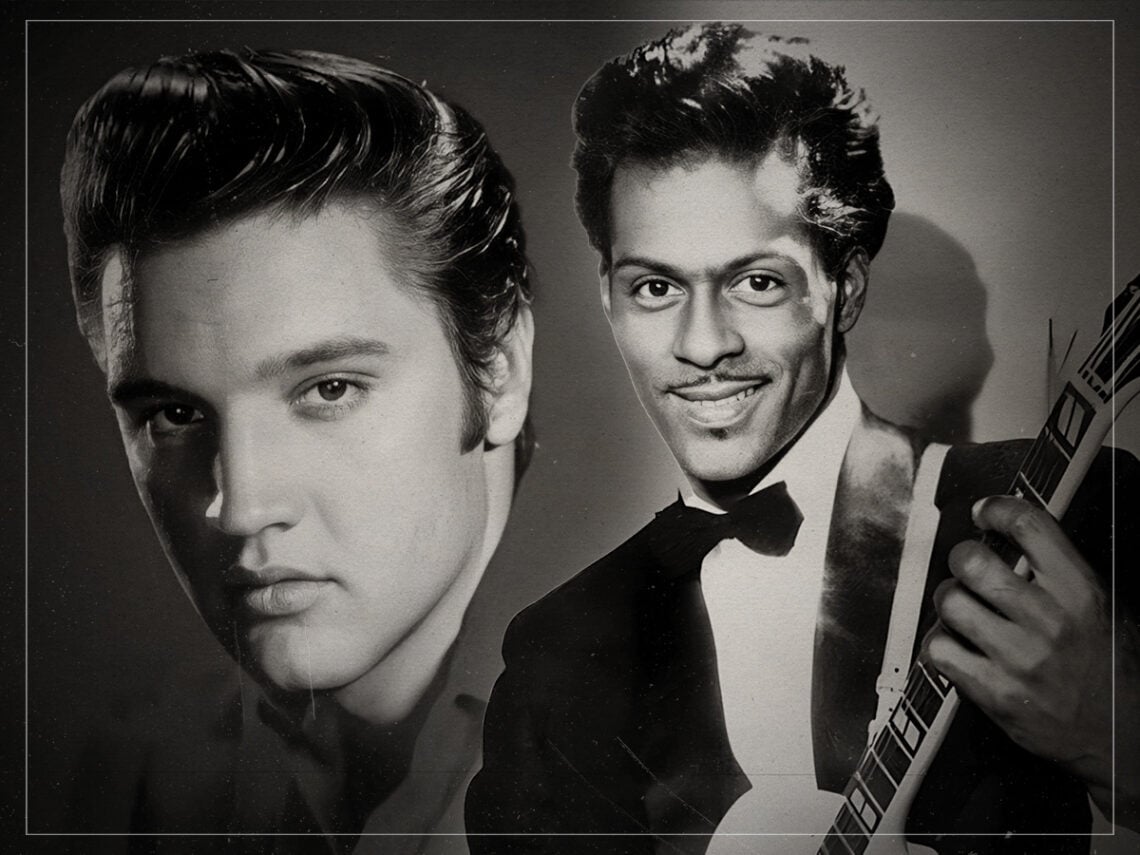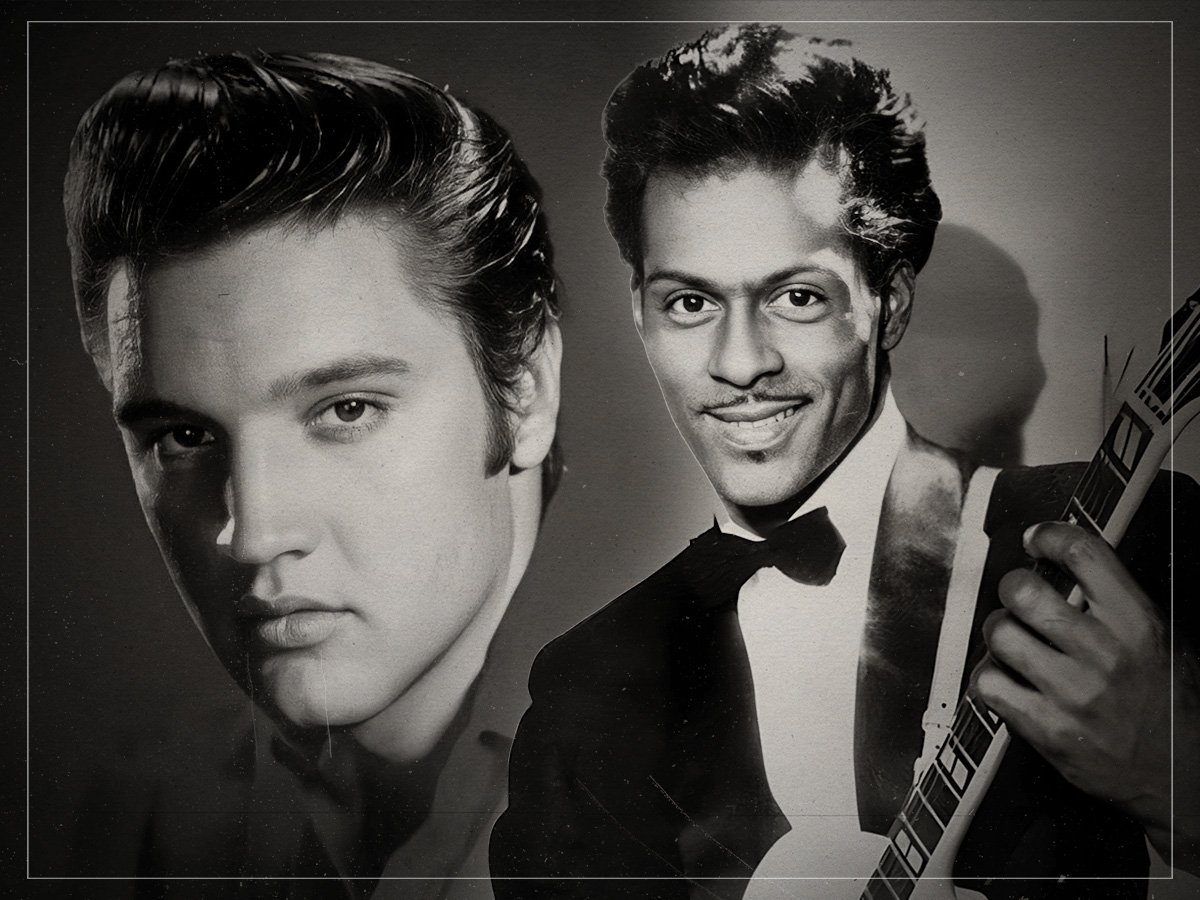
(Credits: Far Out / Alamy / TIDAL)
Sun 9 November 2025 4:00, UK
It was back in the 1950s that Chuck Berry first duckwalked onto the airwaves, defining the revolutionary riffs of the first rock and roll age and spawning a plethora of future guitarists in the process. Even in the midst of his countless iconic anthems, though, he still could not challenge the divine right of ‘The King’.
Neither Berry, nor any of the other now-legendary names which found themselves splashed across rock and roll 45s back in the late 1950s, were the first to establish the sounds of rock and roll. With its roots in the blues, country, and R&B sounds that had populated the airwaves for multiple decades, rock was merely an amalgamation of various different sounds, and some of its artists boasted a greater degree of originality than others. Berry, for instance, was playing a kind of guitar-led rock sound that had never been witnessed before.
You could certainly and correctly argue that his playing style was heavily influenced by the blues heroes who came before him, but even they did not play with the same ferocious energy or profound desperation as the early rockstar. The image of him laying into his cherry-red six-string, in many ways, defined the cultural landscape of the decade, and his seemingly endless run of legendary hits certainly backed up that hype. If there was anybody who could challenge his position, though, it was Elvis Presley.
Unlike Berry, Presley didn’t write his own material, and he certainly couldn’t rival his guitar stylings either, yet the slicked-back hair and hip-shaking power made him the face of the rock and roll age. Inevitably, this caused some resentment towards the so-called ‘King’ from his various rock and roll contemporaries who took umbrage with the fact that a white man had become so intensely rich and famous off the back of performing traditionally Black music.
Ray Charles, for instance, routinely denounced Presley as being little more than a pretender. “Black people have been going out, shaking their behinds for centuries,” he once declared to NBC back in 1994, “That’s all Elvis was doing, was copying that.” Ultimately, though, that was not a viewpoint that was shared by Chuck Berry.
Although the guitarist would have had every right to lament Presley’s comparatively otherworldly success, he instead praised the ‘Jailhouse Rock’ singer as being “the greatest who ever was, is or ever will be”. That particular quote doesn’t leave much up to interpretation and, in fact, Berry appears to take the exact opposite stance to Charles, sharing elsewhere, “Blacks didn’t have the air-waves Elvis had. He delivered what he obtained beautifully”.
Seemingly, then, his adoration of Presley is rooted not just in his profound level of global success and countless array of gold–plated records, but also in his unique ability to deliver traditionally Black sounds to mainstream white audiences.
Were it not for figures like him, the average white kid from middle America might never have heard anything like ‘Jailhouse Rock’ or ‘Hound Dog’, both of which were heavily rooted in the sounds of Black America. By extension, Berry himself might never have achieved the incredible platform that he did without the trailblazing impact of Presley at around the same time.
Related Topics

